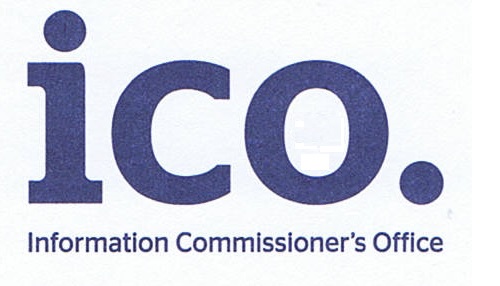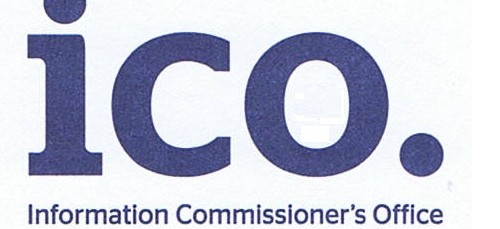What was in Merseyside Fire and Rescue Authority’s 2 page response to the FOI consultation?

Next is the response to the FOI consultation from the Merseyside Fire and Rescue Authority.
Again I’ll declare an interest as I’m alluded to in their response (in fact my profession is named) and my appeal to the Information Commissioners Office last year is explicitly referred to in a report going to councillors next week.
Now by their own figures, responding to all the FOI requests over the whole of last year (2015) used up the equivalent of ~0.375 of a full-time employee.
From what I remember, this means that they allocate more resources to their press office than FOI.
Staff wide Merseyside Fire and Rescue Service had last year an estimated 700 firefighters and I’d estimate 300 staff that aren’t firefighters (of course this is directly employed staff, not staff employed by contractors).
So 0.0375% of its staff budget (approx) is spent on answering FOI requests, the equivalent of around a third of a job of a full-time employee.
Personally if I was on the Merseyside Fire and Rescue Authority I’d be more worried about the other ~999.625 jobs, but there you go! It’s nice to see that they have some nice things to say about journalists in their response though and a report on FOI request will be considered by councillors on the Merseyside Fire and Rescue Authority next Tuesday afternoon. The agenda for that meeting is here and the Wirral Council councillors on it are Cllr Lesley Rennie and Cllr Jean Stapleton.
Below is the MFRA [Merseyside Fire and Rescue Authority] response to the FOI consultation, which you can compare to Liverpool City Council’s response.
Although it states it’s from the MFRA [Merseyside Fire and Rescue Authority] by the way it’s written “The Service considers” one assumes that as with LCC’s response it’s been drafted by officers. Unlike the attitude taken by Liverpool City Council Merseyside Fire and Rescue Service state they are "supportive of the Freedom of Information (FoI) Act".
Merseyside Fire and Rescue Authority
Freedom of Information Call for Evidence
Merseyside Fire and Rescue Authority (MFRA) would like to make the following comments in relation to questions 3 and 6 of the Independent Commission on Freedom of Information Call for Evidence:
Question 3:What protection should there be for information which involves candid assessment of risk? For how long does such information remain sensitive?
The Service considers that there should be some protection for public authorities in relation to the release of risk registers. High level information about risks and mitigation is appropriate for release and many authorities will publish this as a matter of course. When a request is made for detailed risk registers relating to on-going projects or activities, this is much more difficult for this Service to deal with. It is vital when ensuring that public services are being delivered effectively, that all risk are considered and that staff feel able to “think the unthinkable”. Often these risks are mitigated, but they still remain in risk registers and are open to misinterpretation or being sensationalised. The Service would request that consideration be given to risk registers of this type only being release after the project is completed.
Equally releasing risk mitigation measures prior to the completion of the project may compromise the
measures themselves exposing services to additional risk.
Question 6: Is the burden imposed on public authorities under the Act justified by the public interest in the public’s right to know? Or are controls needed to reduce the burden of FoI on public authorities? If controls are justified, should these be targeted at the kinds of requests which impose a disproportionate burden on public authorities? What kinds of requests do impose a disproportionate burden?
The Service is supportive of the Freedom of Information (FoI) Act, and values its role in allowing people access to information and giving them the right to find out about matters and decisions that affect them. However, use of the Act has become increasingly popular and the volume of FoI requests has increased over the years. For example, the table below shows the increase in requests to MFRS since 2011:
|
Year |
FoI Requests received |
FoI requests believed to be for commercial purposes (as far as can be established with the information available) |
|---|---|---|
| 2011 | 72 | Not recorded |
| 2012 | 82 | Not recorded |
| 2013 | 101 | Not recorded |
| 2014 | 138 | 13 |
| 2015 | 131 | 17 |
Dealing with this increase in requests has had an impact on the Service which for Merseyside Fire Authority undoubtedly places increased pressure on relatively small teams. Over the last four years, the Fire and Rescue Authority has had to make savings of £20 million as a result of Government spending cuts. The Authority is required to make a further £6.3 million savings in 2015/16. It is also clear that the Authority will also face further significant cuts over the course of the next Parliament. The Authority has already made significant reductions in its support services and staffing, which means there are fewer staff available to service FoI requests. To save £6.3 million in 2015/16, the Authority has identified another £2.9 million to be cut from support services, further reducing capacity.
Whilst the Service respects the rights of citizens to ask for information that may affect their lives and communities and recognises the role that journalists may play in seeking out inefficiencies or poor practices in the public sector, there is a cost associated with that. The staff collecting, collating, checking, redacting and authorising release of the requested information all have other work to do. As a result, dealing with a FoI request is likely to take staff away from core business.
What the Service believes is particularly difficult to justify is the extent to which commercial organisations use FoI to request information to develop new business leads or seek a commercial advantage. The private sector is effectively using the diminishing resources of the public sector for free, when those resources could be put to better use and there is no return on that investment for the public sector.
What we would ask the Commission to consider is either, levying a charge for such requests, or the ability for an organisation to refuse the request where the applicant is not able to demonstrate that the request is in the public interest.
Even when requests could be considered to be in the public interest, for example in relation to a public consultation on the Service’s plans, the enthusiasm of some members of the public to seek more and more detailed information can place significant pressure on a small authority. Five requests from one person for similar but subtly different complex information in the space of one or two months does result in disproportionate effort. This is despite the fact that individually, the cost of meeting the requests would not be sufficient to justify refusal and the subtle differences between requests rule out treating them as vexatious. It is the cumulative effect that has the impact.
It is also difficult to treat requests as vexatious or indeed classify the work required as excessive without it being perceived by the requestor or indeed the public or press as defensive – so in effect services provide the information for fear of being perceived as less than transparent.
Merseyside Fire & Rescue Service has been recording the time spent by all officers involved in processing all FoI requests since July 2015 (32 completed requests). Given it was already keen to understand and share the impact of such requests with the Authority and Government departments.
As such the total time spent since recording began has totalled 153 hours spread across a range of staff from administrators to the Chief Fire Officer. This equates to an average of 4.8 hours per request. If this was applied to the total number of requests received so far this year it would total 629 hours or 90 working days. With the lost time costs in the thousands.
This is resource that can be ill afforded during these times of austerity, so it is vital that the FoI requests processed are of valid public interest and not to further the profits of a commercial organisation.
The Service has welcomed the opportunity to contribute to this call for evidence and looks forward to the publication of the outcomes.
If you click on any of these buttons below, you’ll be doing me a favour by sharing this article with other people. Thanks:
